Marine plastic debris is one of the most pressing environmental concerns facing the world today. From microplastic ingestion to bioaccumulation of toxins and endocrine system disruption in humans – these are just a few of the devastating effects that plastic pollution has on us and the environment. However, at the Hout Bay Seal Rescue Centre we agree that the most heartbreaking consequences of ocean plastic pollution is animal entanglement.
Seal entanglement is a big problem on the Western Cape coastline. A very active fishing industry around Hout Bay and about 15 000 Cape Fur Seals from Duiker Island are competing for the same fish. Seals are playful and curious animals by nature, and they will often end up playing with plastic rubbish and ocean pollution, such as fishing lines, fishing nets, packing straps, plastic bags or any other item that makes its way into the ocean.
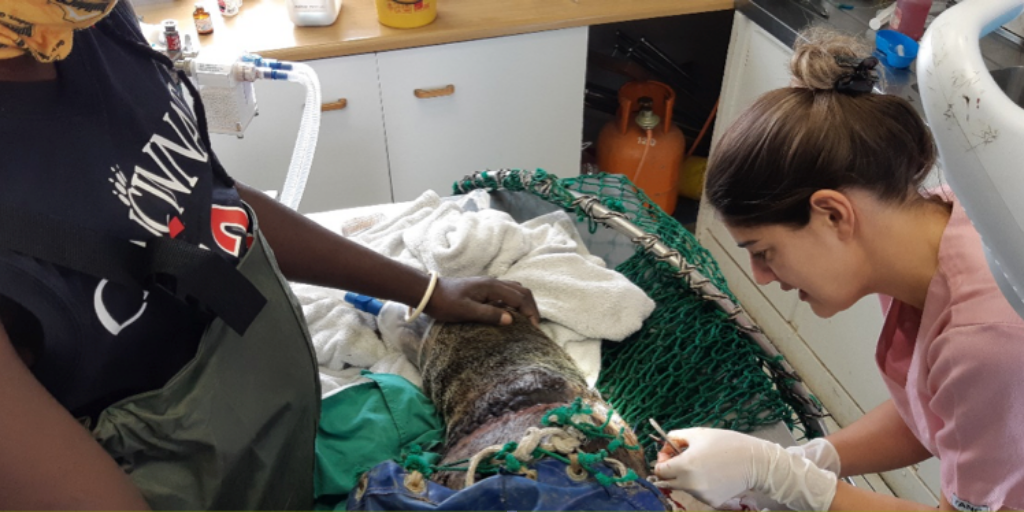
There are two sources of this plastic waste – land-based pollution, such as plastic blown into the sea from a littered beach or washed into the sea by stormwater, and ocean-based pollution, which comes from garbage disposed of at sea by ships and abandoned and lost fishing gear (also called ghost gear).
Once entangled in this plastic waste, seals cannot help themselves. As they grow, the plastic waste will tighten around the seal’s neck, flipper or mouth, leading inevitably to a gruesome death. All seal entanglements are caused by negligent human behaviour.
Truth be told our oceans are choking and seals and other marine animals are paying the price. At present, Kayak Adventures from the Cape Town Bucket List Ocean Adventures (CTBL) Group, operates from Hout Bay and regularly holds harbour clean-ups to assist in alleviating the local plastic pollution. As a result, several tonnes of plastic have been removed from the Hout Bay harbour in the last year. The CTBL also assists us in rescuing injured seals and puppies and transporting them by boat to the centre for rehabilitation.
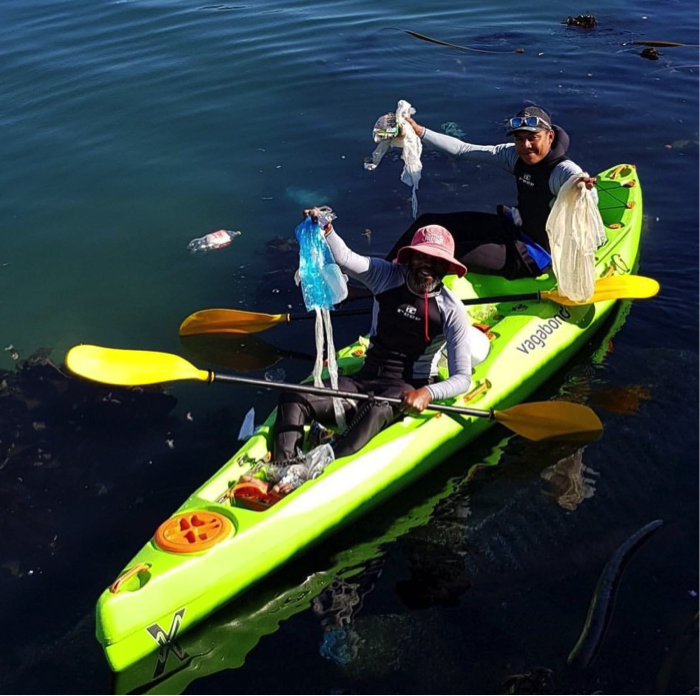
However this is not a sustainable solution. More than 8 million tonnes of discarded plastic ends up in our oceans every single year. Once it is there it doesn’t readily go away. The solution to this problem is twofold:
Not only are illegal and industrial fishing fleets emptying our oceans, but they are also filling our oceans with ghost gear that continues to catch sea creatures, like seals, as if they were still being used. Ghost gear makes up an estimated 10% of the plastic waste in our oceans. Governments and nations should therefore stand together to protect our precious marine life against the onslaught of these fleets.
Another solution is for corporations to stop producing single-use plastics. There is no escaping plastic pollution if corporations keep on producing it and if they don’t give us reusable alternatives.
Our oceans are filled with an abundance of amazing creatures, from adorable Fur Seals to gigantic Blue Whales, and it’s up to us to make sure that these animals are protected, especially against such a scourge as plastic pollution.
MORE INFORMATION ON THE HOUT BAY SEAL RESCUE CENTRE AND FUR SEALS:
The Hout Bay Seal Rescue Centre rescues and rehabilitates Cape Fur Seals, with specific focus on seal pups and yearlings, which have become stranded on the beach or been injured by whatever means.
Duiker Island, just off Hout Bay, has become one of the top attractions in the Western Cape. However, the boat-loads of tourists, who make the journey, are seldom aware of the plight of survival faced by the seal pups and yearlings, which is extremely challenging for them. The primary breeding season for the Cape Fur Seal is in November and December. Some of the young seal pups that are born are often very thin and weak and they may be washed off the rocky islands and swept ashore by rough seas. These very young pups are often sick and injured, and require veterinary assistance and specialised feeding.
The seal pups require immediate attention once rescued, to enable them to have a chance of being resuscitated and rehabilitated. Our seal rescue volunteers are called out at all times of day or night, and immediately respond to calls of seal distress and drive them through to the Hout Bay Seal Rescue Centre, which operates 24 hours a day, where they receive immediate attention by our dedicated Seal Carers, who live and work on-site at the centre.
The seals are immediately treated for dehydration and are tube fed at regular intervals throughout the day and night, to ensure sustenance is provided to the distressed seals. Where necessary, we request veterinary assistance. We have a large water enclosure in the centre, where the seal pups can safely enter and learn to swim, before they are fully strong and healthy and able to fend for themselves in the large ocean. The length of assistance and recuperating time varies for each young pup, ranging from 6 months to a year.
The Cape Fur Seal is a protected animal since 1973 by the Sea Birds and Seal Protection Act, where only the state has been allowed to cull seals at specific colonies.
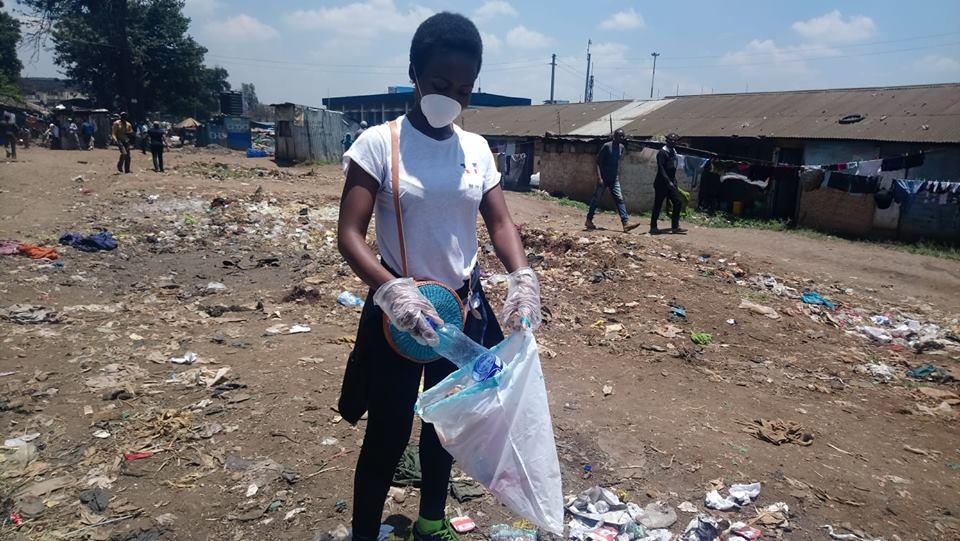

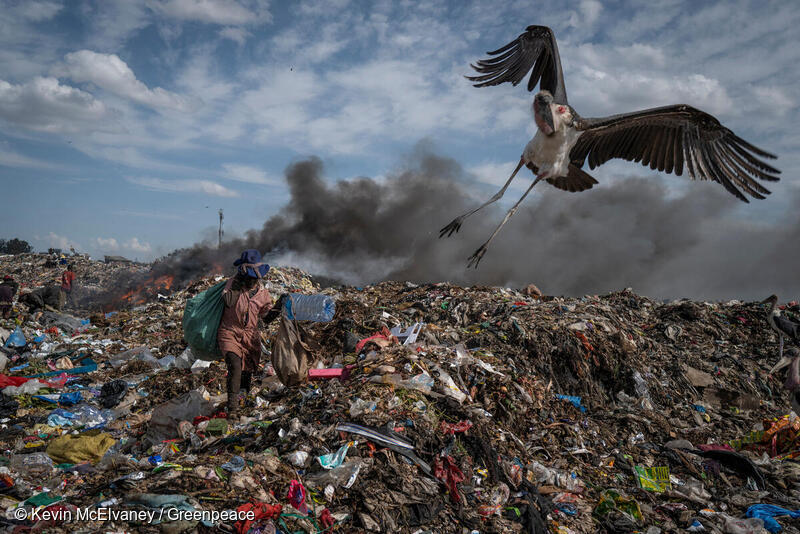
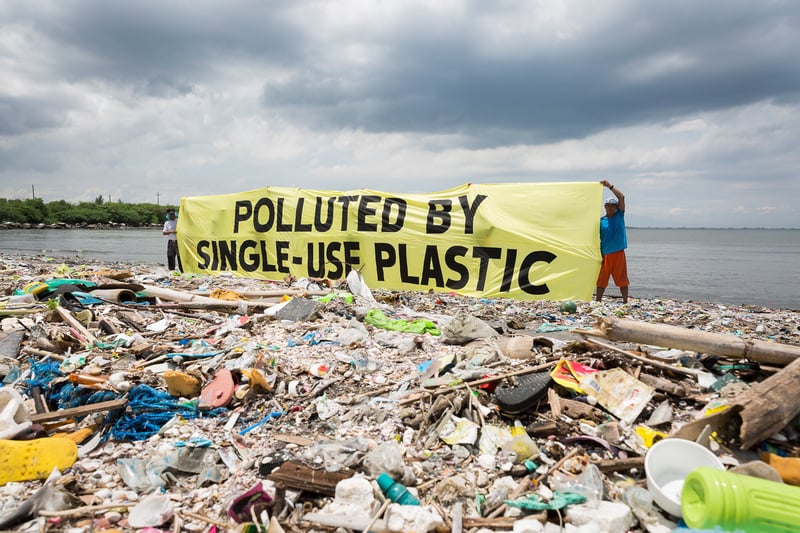

Discussion
Plastic pollution does not only make our seal suffer but other amazing sea creatures too! This need to stop ASAP. We need to stop producing single-use plastic and stop littering. Imagine us humans (yourself) getting plastic inside your food, or seeing tons of plastic in and outside your house, and everywhere you go! If you don't like it then why do we do it to the animals!?
It is time for single-use industry to switch to environmental safe packaging.
Stop littering. #SAVE The sea lions 😀💖
Thank you for your support 💚.
:)
ITs Time to stop polluting we need to save the seals so donate to greenpeace
Thank you for being so supportive.